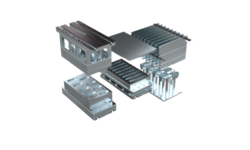CRM 系统 排名 ⏬⏬
CRM系统排名是一个关于客户关系管理软件的评估与比较的主题。在当今竞争激烈的商业环境中,CRM系统扮演着关键的角色,帮助企业有效地管理客户关系、提高销售和市场营销效率,并实现可持续增长。针对不同企业需求和行业特点,有许多CRM系统供选择。了解最新的CRM系统排名和评估结果,将有助于企业选择最适合自身需求的解决方案,提升业务表现并取得竞争优势。
CRM System Ranking
A CRM (Customer Relationship Management) system is a software solution designed to manage and analyze customer interactions and data throughout the entire customer lifecycle. It helps businesses improve their sales, marketing, and customer service activities by providing valuable insights and facilitating efficient communication.
When it comes to choosing the right CRM system for your business, it’s essential to consider various factors such as features, scalability, user-friendliness, integration capabilities, and customer support. To assist you in making an informed decision, here is a ranking of the top CRM systems:
| Ranking | CRM System |
|---|---|
| 1 | Salesforce |
| 2 | HubSpot |
| 3 | Microsoft Dynamics 365 |
| 4 | Zoho CRM |
| 5 | Pipedrive |
Salesforce is often considered the industry leader due to its comprehensive feature set, customization options, and robust third-party integrations. It caters to businesses of all sizes and industries.
HubSpot offers a user-friendly interface, powerful marketing automation capabilities, and a free version with basic CRM functionality. It is particularly suitable for small and medium-sized businesses.
Microsoft Dynamics 365 integrates seamlessly with other Microsoft tools and offers advanced functionality for sales, marketing, and customer service. It is a popular choice among large enterprises.
Zoho CRM provides a wide range of features at an affordable price point, making it suitable for small businesses and startups. It offers extensive customization options and integrates with other Zoho applications.
Pipedrive focuses primarily on sales pipeline management and is known for its simplicity and ease of use. It is favored by sales teams and professionals who prioritize deal tracking and management.
Remember that the ranking may vary based on your specific business requirements and preferences. It is advisable to thoroughly evaluate each CRM system’s features, pricing plans, and support options before making a decision.
Note: This ranking is based on general industry trends and market perception as of September 2021. It is always recommended to conduct updated research to ensure the accuracy of the information.
Top CRM Systems
| CRM System | Description |
|---|---|
| Salesforce CRM | Salesforce CRM is a cloud-based customer relationship management platform that helps businesses manage and streamline their sales, marketing, and customer service processes. It offers a wide range of features including lead management, opportunity tracking, email integration, and analytics. |
| HubSpot CRM | HubSpot CRM is a free and user-friendly CRM system designed for small to mid-sized businesses. It provides tools for contact management, deal tracking, email marketing, and reporting. HubSpot CRM also integrates seamlessly with other HubSpot products for a comprehensive marketing and sales solution. |
| Zoho CRM | Zoho CRM is a cloud-based CRM software that caters to businesses of all sizes. It offers modules for sales force automation, lead management, marketing automation, and customer support. Zoho CRM also provides integrations with popular third-party applications and has a customizable interface. |
| Microsoft Dynamics 365 | Microsoft Dynamics 365 is a flexible CRM platform that combines CRM and enterprise resource planning (ERP) capabilities. It offers a unified solution for sales, marketing, customer service, and operations. With its integration with Microsoft Office and other Microsoft products, it provides a familiar environment for users. |
| Oracle CX Cloud | Oracle CX Cloud is a suite of CRM applications that helps businesses deliver personalized customer experiences across marketing, sales, commerce, and service. It offers a range of features such as lead management, campaign management, social listening, and AI-powered analytics. |
Best CRM Software
A Customer Relationship Management (CRM) software is a powerful tool that helps businesses manage their interactions and relationships with customers. It provides a centralized platform for storing customer data, tracking sales activities, and enhancing customer engagement. Choosing the best CRM software for your business is crucial to optimize your sales and marketing efforts.
When evaluating CRM software options, there are several factors to consider:
- Features: Look for CRM software that offers a comprehensive set of features tailored to your business needs. This could include contact management, lead generation, sales pipeline management, email marketing, customer support, reporting, and analytics.
- User-Friendliness: The software should have an intuitive interface and be easy to navigate for both you and your team. A user-friendly CRM system ensures efficient adoption and minimizes training time.
- Integration: Check if the CRM software integrates seamlessly with other tools and platforms your business uses, such as email clients, marketing automation software, or customer service applications. Integration streamlines data flow and improves productivity.
- Customization: A flexible CRM solution allows you to customize fields, workflows, and reports according to your specific requirements. Tailoring the software to match your business processes can enhance efficiency and accuracy.
- Scalability: Consider the scalability of the CRM software. As your business grows, you’ll need a system that can accommodate increasing data volumes and user requirements without compromising performance.
- Security: Ensure that the CRM software provides robust security measures to protect sensitive customer data. Look for features like data encryption, user access controls, and regular data backups.
Some popular and highly regarded CRM software options include:
- Salesforce: Known for its extensive functionality and customization options, Salesforce is one of the leading CRM solutions used by businesses of all sizes.
- HubSpot CRM: HubSpot offers a free CRM platform with a user-friendly interface and integrates well with their marketing and sales tools.
- Zoho CRM: Zoho provides a feature-rich CRM software that caters to small and medium-sized businesses, offering a range of pricing plans.
- Pipedrive: Pipedrive focuses on sales pipeline management and is known for its simplicity and visual approach to deal tracking.
- Microsoft Dynamics 365: Microsoft’s CRM solution offers a wide range of capabilities and integrates seamlessly with other Microsoft products.
Choosing the best CRM software for your business requires careful consideration of your specific needs, budget, and future growth plans. It’s recommended to evaluate multiple options, take advantage of free trials or demos, and seek recommendations from trusted sources or industry peers to make an informed decision.
CRM Solutions Comparison
A CRM (Customer Relationship Management) solution is a software tool or platform that helps businesses manage their customer interactions, streamline sales processes, and improve overall customer satisfaction. There are various CRM solutions available in the market, each offering distinct features and capabilities. In this article, we will compare different CRM solutions to help you make an informed decision for your business.
1. Salesforce
Salesforce is one of the leading CRM solutions globally, known for its robust functionality and extensive customization options. It offers a wide range of features, including contact management, opportunity tracking, sales forecasting, and marketing automation. Salesforce also provides seamless integration with other business tools and platforms, making it a popular choice for enterprises.
2. HubSpot
HubSpot is a comprehensive CRM solution that caters to small and medium-sized businesses. It offers a user-friendly interface, email marketing capabilities, lead management, and customer support features. HubSpot’s CRM integrates with its marketing and sales tools, allowing businesses to manage their entire customer journey from a single platform.
3. Zoho CRM
Zoho CRM is a versatile solution suitable for businesses of all sizes. It provides modules for sales force automation, contact management, lead generation, and analytics. Zoho CRM focuses on simplicity and ease of use while offering advanced features like workflow automation, AI-powered chatbots, and social media integrations.
4. Microsoft Dynamics 365
Microsoft Dynamics 365 is a cloud-based CRM solution that seamlessly integrates with Microsoft’s suite of business applications. It offers features such as sales automation, customer service management, marketing automation, and business intelligence. With its powerful integration capabilities, Microsoft Dynamics 365 enables cross-department collaboration and data-driven decision-making.
Choosing the right CRM solution for your business depends on various factors such as company size, industry, budget, and specific requirements. Salesforce, HubSpot, Zoho CRM, and Microsoft Dynamics 365 are just a few examples of the many CRM solutions available in the market. Consider evaluating their features, scalability, ease of use, and customer reviews to determine which CRM solution aligns best with your business goals and needs.
CRM Tools Evaluation
A Customer Relationship Management (CRM) tool is a software solution designed to help businesses manage and analyze their interactions with customers. When evaluating CRM tools, several factors should be considered to make an informed decision.
1. Features and Functionality
It is important to assess the features and functionality offered by CRM tools. Look for key capabilities such as contact management, lead tracking, sales forecasting, customer support, and reporting. Consider your specific business needs and ensure that the chosen CRM tool provides adequate solutions.
2. Integration
Check whether the CRM tool integrates smoothly with other systems and applications used in your organization, such as email clients, marketing automation software, and productivity tools. Seamless integration enhances efficiency and ensures data consistency across platforms.
3. Scalability
Consider the scalability of the CRM tool to accommodate your future growth. Ensure that it can handle an increasing volume of contacts, leads, and data without compromising performance. Scalability is crucial for long-term success and avoids the need to switch tools frequently.
4. User Experience and Ease of Use
An intuitive and user-friendly interface is essential for widespread adoption and efficient utilization of the CRM tool. Evaluate the tool’s navigation, customization options, and accessibility from different devices. A well-designed CRM tool reduces training time and improves productivity.
5. Data Security and Privacy
Since CRM tools store sensitive customer data, it is vital to prioritize data security and privacy. Assess the tool’s security measures, encryption protocols, access controls, and compliance with relevant regulations like GDPR or CCPA. Protecting customer information is crucial for maintaining trust and avoiding legal issues.
6. Support and Reliability
Consider the level of support provided by the CRM tool vendor, including technical assistance, documentation, and user communities. Evaluate their track record for reliability, uptime, and data backup. Good support ensures smooth operations and timely resolution of issues.
7. Pricing and Return on Investment (ROI)
Evaluate the pricing models offered by different CRM tools, considering factors like upfront costs, subscription fees, and additional features or modules. Additionally, calculate the potential return on investment based on the expected benefits and increased productivity the CRM tool can bring to your business.
By carefully evaluating these factors, you can choose a CRM tool that aligns with your business objectives and empowers your team to effectively manage customer relationships. Remember to consider your specific requirements and seek input from relevant stakeholders before making a decision.
Popular CRM platforms
A Customer Relationship Management (CRM) platform is a software tool that helps businesses manage their interactions and relationships with customers. There are several popular CRM platforms available in the market today, each offering unique features and capabilities to cater to different business needs. Here are some of the most widely used CRM platforms:
- Salesforce: Salesforce is one of the leading CRM platforms known for its robust features and scalability. It offers a wide range of tools for sales, marketing, customer service, and analytics.
- HubSpot: HubSpot provides an all-in-one CRM solution that integrates with various marketing, sales, and customer support tools. It offers features like contact management, lead generation, email marketing, and more.
- Microsoft Dynamics 365: Microsoft Dynamics 365 is a comprehensive CRM platform that combines customer relationship management with enterprise resource planning (ERP) capabilities. It offers modules for sales, marketing, customer service, and field service.
- Zoho CRM: Zoho CRM is a user-friendly platform that caters to small and medium-sized businesses. It offers features such as lead management, pipeline tracking, email integration, and social media integration.
- Pipedrive: Pipedrive is known for its intuitive and visual interface designed specifically for sales teams. It focuses on pipeline management, deal tracking, and sales forecasting.
These are just a few examples of popular CRM platforms, and there are many other options available in the market. Each platform has its own strengths and weaknesses, so it’s important for businesses to evaluate their specific requirements before selecting a CRM solution.
Note: The information provided here is based on the knowledge available up until September 2021 and may have changed since then. It’s always recommended to refer to the official websites of the respective CRM platforms for the most up-to-date information.
CRM Software Reviews
Customer Relationship Management (CRM) software is a vital tool for businesses to manage their interactions with customers and streamline sales and marketing processes. In this article, we will provide a concise overview of CRM software reviews.
When evaluating CRM software, it is crucial to consider several factors:
- Features: Look for software that offers a comprehensive range of features, such as contact management, lead tracking, sales forecasting, and customer support.
- Usability: User-friendly interfaces and intuitive navigation are essential to ensure easy adoption by your team.
- Integration: Check whether the CRM software integrates smoothly with other tools and systems your business relies on, such as email marketing platforms or accounting software.
- Customization: A flexible CRM solution allows you to customize fields, workflows, and reports according to your specific business needs.
- Scalability: Consider the growth potential of your business and choose software that can accommodate increasing data volumes and user numbers.
- Security: Protecting sensitive customer data is paramount, so opt for CRM software that employs robust security measures, such as encryption and access controls.
- Support: Evaluate the level of customer support provided by the CRM software vendor, including availability, response time, and available resources like documentation or training materials.
Reading CRM software reviews can be valuable in making an informed decision. These reviews often include insights from industry experts and real users who have firsthand experience with the software. They can help you assess the pros and cons of different CRM solutions and determine which one aligns best with your business requirements.
By considering the factors mentioned above and leveraging CRM software reviews, you can select a solution that empowers your organization to optimize customer relationships, enhance productivity, and drive growth.
Top Rated CRM Systems
A Customer Relationship Management (CRM) system is a vital tool for businesses to effectively manage their interactions with customers and improve overall customer satisfaction. A good CRM system helps streamline processes, enhance communication, and ultimately drive sales growth. In this article, we will explore some of the top-rated CRM systems available in the market today.
1. Salesforce
Salesforce is widely recognized as one of the leading CRM platforms. It offers a comprehensive range of features, including contact management, lead tracking, opportunity management, and sales forecasting. With its cloud-based architecture, Salesforce provides scalability and accessibility from anywhere, making it a popular choice for businesses of all sizes.
2. HubSpot CRM
HubSpot CRM is another highly regarded CRM system known for its user-friendly interface and extensive functionality. It offers tools for managing contacts, deals, tasks, and marketing automation. HubSpot’s CRM is free to use and integrates seamlessly with other HubSpot products, such as their marketing and sales software, providing a comprehensive solution for businesses.
3. Zoho CRM
Zoho CRM is a feature-rich CRM system that caters to diverse business needs. It offers modules for sales force automation, marketing automation, customer support, and analytics. Zoho CRM provides customization options, allowing businesses to tailor the system to their specific requirements easily.
4. Microsoft Dynamics 365
Microsoft Dynamics 365 is an integrated suite of CRM and enterprise resource planning (ERP) applications. It combines various functionalities, including sales, customer service, marketing, and operations, into a unified platform. Microsoft Dynamics 365 offers seamless integration with other Microsoft products, such as Office 365 and Outlook, enhancing productivity and collaboration.
5. Pipedrive
Pipedrive is a CRM system known for its intuitive interface and focus on sales pipeline management. It provides tools for tracking deals, managing contacts, and generating insightful sales reports. Pipedrive offers customization options and integrates with popular third-party apps, making it suitable for sales teams looking for a streamlined CRM solution.
These are just a few examples of the top-rated CRM systems available in the market. Each system has its own strengths and features that cater to different business requirements. When selecting a CRM system, it’s important to consider factors such as scalability, ease of use, integration capabilities, and pricing to find the best fit for your organization.
Choosing the Right CRM System
A Customer Relationship Management (CRM) system is an essential tool for businesses to manage and nurture their relationships with customers. However, selecting the right CRM system can be a critical decision that affects an organization’s efficiency and success.
When choosing a CRM system, several factors should be considered:
- Business Needs: Identify your specific business requirements and objectives. Determine the features and functionalities you need from a CRM system to address these needs.
- Scalability: Consider the scalability of the CRM system. Ensure it can accommodate your organization’s growth and handle an increasing volume of data and users in the future.
- User-Friendliness: Look for a CRM system that is intuitive and user-friendly. A system that is easy to navigate and understand will encourage user adoption and maximize productivity.
- Integration Capabilities: Evaluate the CRM system’s compatibility with existing software and systems used within your organization. Seamless integration can streamline processes and enhance data accuracy.
- Customizability: Assess the level of customization offered by the CRM system. Determine if it allows you to tailor the platform to align with your unique business processes and workflows.
- Data Security: Prioritize the security features of the CRM system. It should have robust measures in place to protect sensitive customer information and ensure compliance with data privacy regulations.
- Vendor Reliability: Research and evaluate the reputation and reliability of CRM system vendors. Consider factors such as customer reviews, vendor support, and the longevity of the company.
By carefully considering these factors, you can make an informed decision when choosing a CRM system that aligns with your business needs and helps improve customer relationships, streamline processes, and drive growth.
CRM System Features and Benefits
A Customer Relationship Management (CRM) system is a powerful tool used by businesses to manage and enhance their relationships with customers. It provides various features and benefits that can significantly improve customer interactions, streamline processes, and drive business growth.
Key Features of CRM Systems:
- Centralized Customer Database: CRM systems store comprehensive customer information in a centralized database, enabling quick access to customer data and history.
- Contact Management: CRM systems help organize and manage customer contacts, including contact details, communication history, and preferences.
- Sales and Opportunity Management: CRM systems assist in tracking sales opportunities, managing pipelines, and forecasting revenue.
- Marketing Automation: CRM systems often include marketing automation functionalities, allowing businesses to streamline marketing campaigns, track leads, and analyze campaign effectiveness.
- Customer Service and Support: CRM systems provide tools for efficient customer support, ticket management, and issue resolution, resulting in improved customer satisfaction.
- Analytics and Reporting: CRM systems offer robust analytics and reporting capabilities, providing valuable insights into customer behavior, sales trends, and overall business performance.
Benefits of CRM Systems:
- Enhanced Customer Relationships: CRM systems enable personalized and targeted interactions with customers, fostering stronger relationships and loyalty.
- Improved Sales Efficiency: By automating sales processes, CRM systems help sales teams track leads, prioritize tasks, and close deals more effectively.
- Better Marketing Campaigns: CRM systems enable businesses to segment customers, personalize marketing messages, and measure campaign success, leading to higher marketing ROI.
- Streamlined Customer Service: CRM systems facilitate quicker response times, efficient ticket management, and better customer issue resolution, resulting in improved customer satisfaction.
- Increased Productivity: With centralized data and automated processes, CRM systems save time and effort for employees, allowing them to focus on value-added activities.
- Data-driven Decision Making: CRM systems provide valuable insights through analytics and reporting, empowering businesses to make informed decisions based on real-time data.



